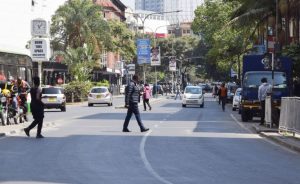Zimbabwe: Zim Leads the Region With 51% Female UN Peacekeepers

Zimbabwe has set a new regional benchmark for gender equality in peacekeeping with women now making up 51 percent of the country’s personnel deployed in United Nations missions according to the Ministry of Defence.
The milestone was revealed during the Women, Peace and Security (WPS) Symposium in Harare, marking the 25th anniversary of the UN Security Council Resolution 1325 which affirms the critical role of women in peacebuilding and the disproportionate impact of conflict on women and children.
Addressing delegates Defence Permanent Secretary Aaron Nhepera said the achievement reflected Zimbabwe’s strong commitment to gender mainstreaming across the defence and security sector.
“As part of her gender mainstreaming policy, Zimbabwe has made huge strides in advancing the cause of women in the defence and security sector.
“Women are not just being encouraged to join the sector but have been capacitated and elevated to senior leadership positions. Currently, 51 percent of the Zimbabwe Defence Forces members deployed on peacekeeping missions are women,” Nhepera said.
He added that while Southern Africa remains relatively stable, new and emerging threats require inclusive and gender-responsive strategies.
“Let it remain etched in our minds that women and children have unique needs which are better understood and managed by women themselves,” he said.
Expanding the definition of peace and security
The symposium also underscored the country’s holistic approach to peace and security–one that extends beyond the absence of war to encompass social, economic and environmental stability.
Minister of Women Affairs, Community, Small and Medium Enterprises Development, Senator Monica Mutsvangwa in a speech delivered on her behalf by Permanent Secretary Dr Mavis Sibanda hailed the country’s progress in implementing the First-Generation National Action Plan on Women, Peace and Security (2024-2027).
“Through this plan, we have strengthened gender mainstreaming across our security and development institutions and enhanced women’s participation in decision-making bodies at all levels.
“Across the nation, women are increasingly taking on leadership roles in conflict prevention, peacebuilding, humanitarian response, and community resilience,” said Mutsvangwa
She added that the government’s peace and security agenda focuses on addressing everyday threats faced by women and girls, including gender-based violence, economic marginalisation and climate-induced crises.
UN Resident and Humanitarian Coordinator Edward Kallon commended Zimbabwe’s progress, describing its WPS National Action Plan as “a robust framework translating commitments into tangible results.”
“Zimbabwe has embraced this agenda with clarity and purpose. The Government’s leadership on WPS is evident in community dialogues, capacity building initiatives, and local peace structures ensuring women’s voices shape decisions at every level,” Kallon said
Adopted in 2000, UNSCR 1325 calls for the inclusion of women in all aspects of peace and security processes. The 1325+25 commemoration celebrates 25 years of global efforts to strengthen women’s participation in conflict resolution and peacebuilding.
With over half of its peacekeepers now women, Zimbabwe is positioning itself as a regional model for gender inclusion in peace operations setting a precedent for other nations in Africa and beyond to follow.
By 263Chat.



